Do All Animals Have Intercorse Basicly The Same Way
Do animals accept sex for pleasure?
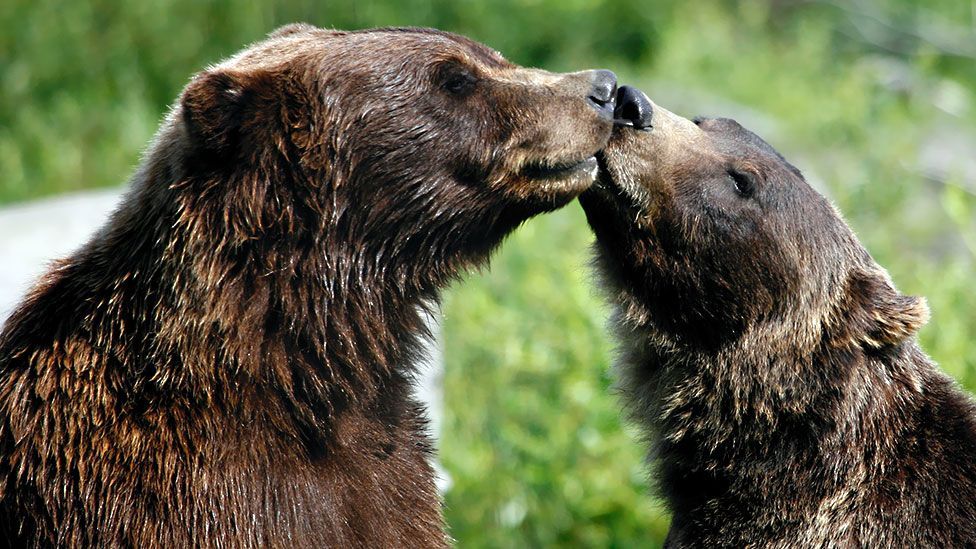
We idea we were the only species to relish intimate interactions, just as Jason G Goldman discovers, a few curious couplings in nature have changed our view.
South
Sex, we are told, is pleasurable. Yet y'all probably wouldn't think that if yous waded through the scientific literature. That's because most scientific accounts of sexual behaviour residuum upon evolutionary explanations rather than the more immediately relevant mental and emotional experiences. To say that nosotros take sex activity because it helps us to preserve our genetic legacies would be entirely authentic, merely the more fleeting, experiential, pleasurable aspects of that most bones of social urges would be missing. It would be like staring at a painting with half the colour spectrum removed from it.
I thing nosotros have been curious nigh, though, is whether we are the but species that experiences sexual pleasure. The question of whether non-human animals enjoy it as well is a perennial – and scientifically legitimate – question to enquire.
In the last 10 to 15 years, scientific evidence has begun to accumulate that animals do experience a full general sensation of pleasure – as anybody who has stroked a cat will know. In 2001, for case, psychologists Jeffrey Burgdorf and Jaak Panskepp discovered that laboratory rats enjoyed being tickled, emitting a sort of chirpy laugh outside the range of man hearing. And not just that, they would actively seek out the feeling.
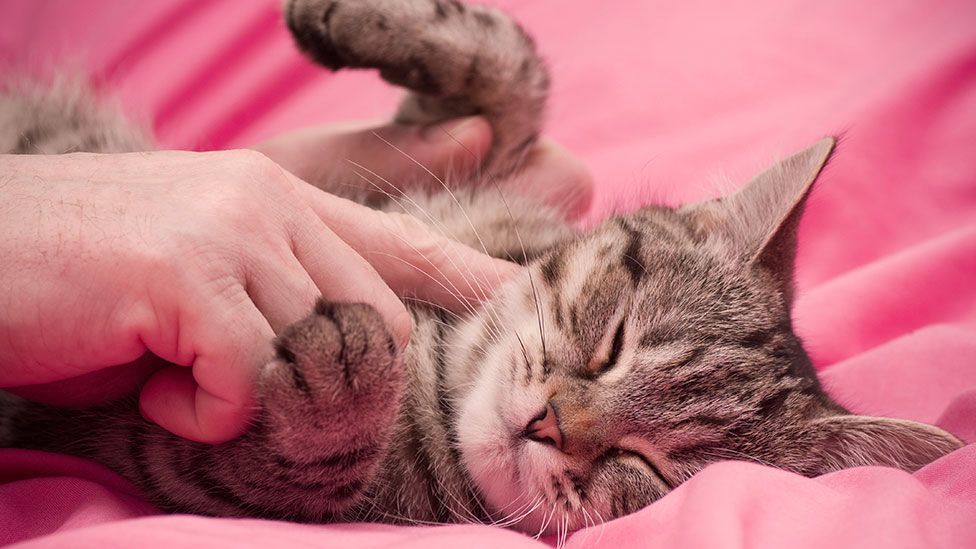
We know animals similar cats experience a full general awareness of pleasure, but does this extend to sexual practice? (Thinkstock)
Merely does that include carnal pleasure too? Ane manner to find out is to study instances of sex activity that can't perchance issue in procreation – for instance, among two or more males, or females; where 1 or more individual is sexually immature, or sex that occurs outside of the convenance season.
Bonobos, for example, the and so-chosen "hippie apes," are known for aforementioned-sex activity interactions, and for interactions between mature individuals and sub-adults or juveniles. But yous don't need to be a bonobo to relish "non-conceptive" sex, white-faced capuchin monkeys practise it too. In both species, primatologists Joseph Manson, Susan Perry, and Amy Parish, found that that females' solicitation of males was decoupled from their fertility. In other words, they had plenty of sex even when pregnancy was impossible – such as when they were already pregnant, or while lactating just following birth. In addition, interactions amid mature and immature individuals were merely as mutual as interactions between ii adults, for both species.
If animals indulge in more sex than is strictly necessary for formulation, that too might hint at a pleasance-driven motivation to do the deed. A female panthera leo may mate 100 times per day over a period of virtually a week, and with multiple partners, each time she ovulates. Information technology only takes one eager sperm to begin the road from conception to birth, merely the lioness doesn't seem to mind. Could it be that she enjoys it? Similarly high rates of encounters have been observed among cougars and leopards, too.
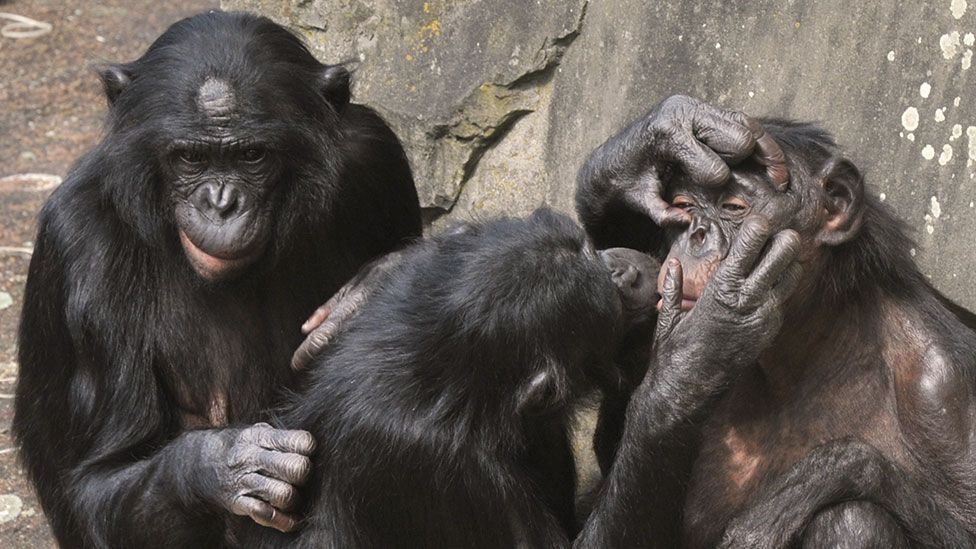
Researchers have been studying the broad and varied interactions that bonobos have office in for many years (Getty Images)
Some other way you lot might larn whether non-human being animals derive pleasure is whether they accept orgasms. That'south especially truthful for females, since conception does not rely on their ability to experience one. Italian researchers Alfonso Troisi and Monica Carosi spent 238 hours watching Japanese macaques, and witnessed 240 private copulations betwixt males and females. In a third of those copulations, they observed what they called female orgasmic responses: "the female turns her head to look back at her partner, reaches dorsum with one manus, and grasps the male."
While it's impossible to inquire a female person macaque to interrogate her feelings, it is reasonable to infer that this behaviour is similar to that experienced by human women, at to the lowest degree in some ways. That's in part because this macaque behaviour is sometimes accompanied by the type of physiological changes seen in humans, such as increases in center rate and vaginal spasms. Interestingly, the female macaques were more likely to experience a response when copulating with a male who lived college-upwardly in their monkey dominance bureaucracy, suggesting that there is a social, not simply physiological, component to this, not merely a reflexive responses to sexual stimulation.
Oral sex as well occurs with some frequency throughout the animal kingdom. It's been observed in primates, spotted hyenas, goats and sheep. Female cheetahs and lions lick and rub the males' genitals as a part of their courtship ritual. Oral sex is also well known among short-nosed fruit bats, for whom it is idea to prolong copulation, thereby increasing the likelihood of fecundation.
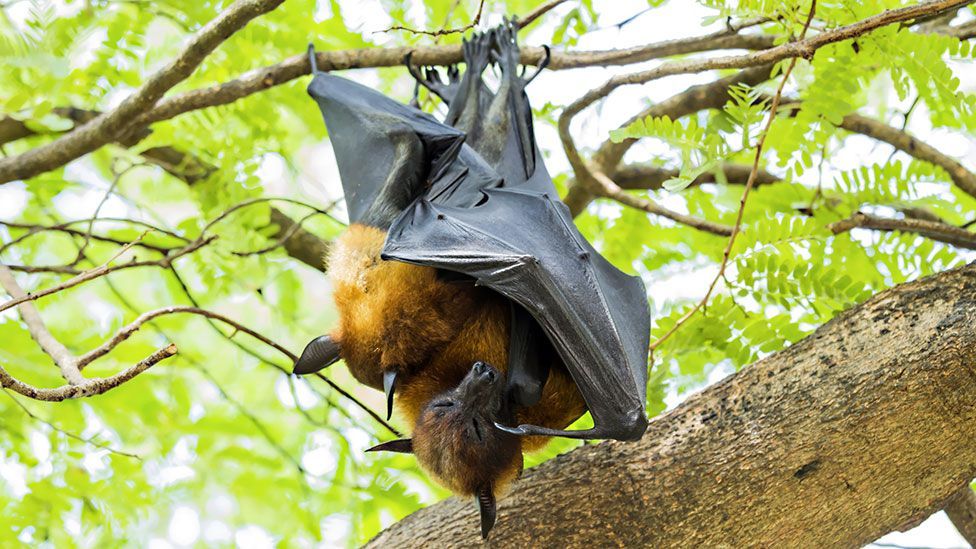
In short-nosed fruit bats, oral sex is thought to help increase the likelihood of fertilisation (Thinkstock)
The virtually instructive instance may come up from a study of two convict male person brownish bears published earlier this twelvemonth in the journal Zoo Biology. Over the course of six years, researchers amassed 116 hours of behavioural observations, which included 28 acts of oral sexual activity between the two bears, who lived together in an enclosure at a sanctuary in Republic of croatia.
The researchers, led past Agnieszka Sergiel of the Polish Academy of Sciences Department of Wild fauna Conservation, suspect that the behaviour began as a event of early deprivation of suckling behaviour, since both bears were brought to the sanctuary as orphans, before they were fully weaned from their absentee mothers. It persisted for years, even after the bears aged out of cub-hood, possibly because information technology remained pleasurable and satisfying.
In nigh cases, researchers rely on evolutionary mechanisms to explain such brute behaviour, to resist the pull of anthropomorphosis. Every bit ethologist Jonathan Balcombe writes in Practical Animate being Behaviour Science: "Pain'southward unpleasantness helps steer the fauna abroad from 'bad' behaviours that chance the greater evolutionary disaster of death. Similarly, pleasure encourages animals to behave in 'proficient' ways, such equally feeding, mating, and…staying warm or cool."
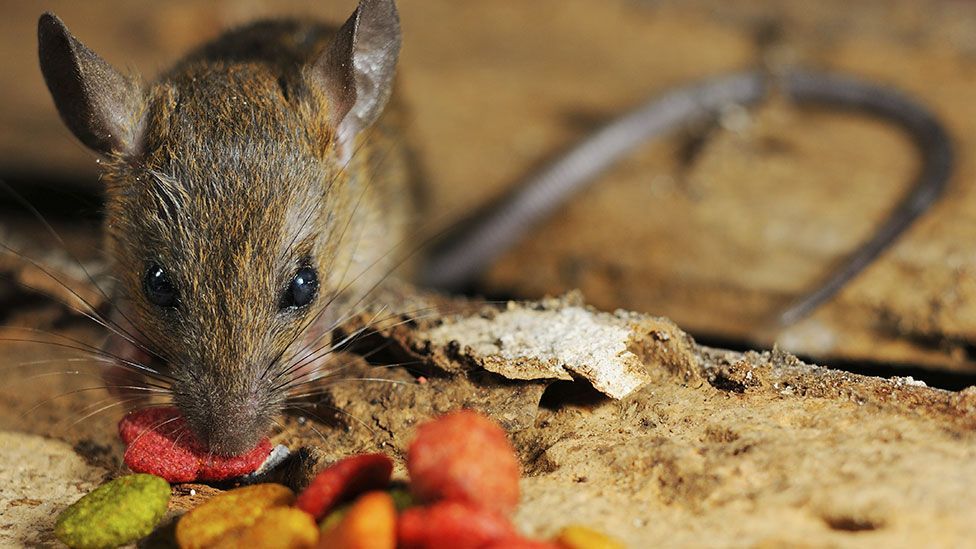
Could the urge in animals and humans to vary things in diet be because at that place's an in-built desire to attempt new things? (Thinkstock)
Yet Balcombe proposes that scientists shouldn't merely view behaviour through the lens of evolution. He goes on to explicate that rats adopt unfamiliar foods later three days in which they're just given a single blazon of food to eat. The simplest explanations for that design suggest that the rats' behaviour is adaptive because a diverseness of foods allows them to ingest a wider range of nutrients, or maybe because it allows them to avoid overdependence on a perhaps limited food source. Only is that likewise narrow a view, when it'southward equally plausible that the rats only became bored with their food and wanted to try something new? To spice things upwards a fleck? Both explanations are probably true, depending on whether you accept an expansive, zoomed-out perspective, or a more immediate, zoomed-in perspective.
Likewise, sexual behaviour can be wholly enjoyable while also emerging from a deeper developmental or evolutionary origin. It is precisely because reproduction is so important to the survival of a species that development made information technology and so pleasurable that animals – both human and non-human – are motivated to seek it out even when formulation is undesirable or impossible. The urge to seek out that sort of pleasance, writes Balcombe, "is a combination of instinct on the 1 hand, and a powerful want to achieve reward on the other." If so, it'south clear why these powerful feelings of pleasance aren't only restricted to united states of america humans.
If you would like to comment on this, or anything else you lot have seen on Futurity, head over to our Facebook or Google+ page, or bulletin us on Twitter .
Source: https://www.bbc.com/future/article/20140613-do-animals-have-sex-for-fun
Posted by: gossforproing.blogspot.com

0 Response to "Do All Animals Have Intercorse Basicly The Same Way"
Post a Comment